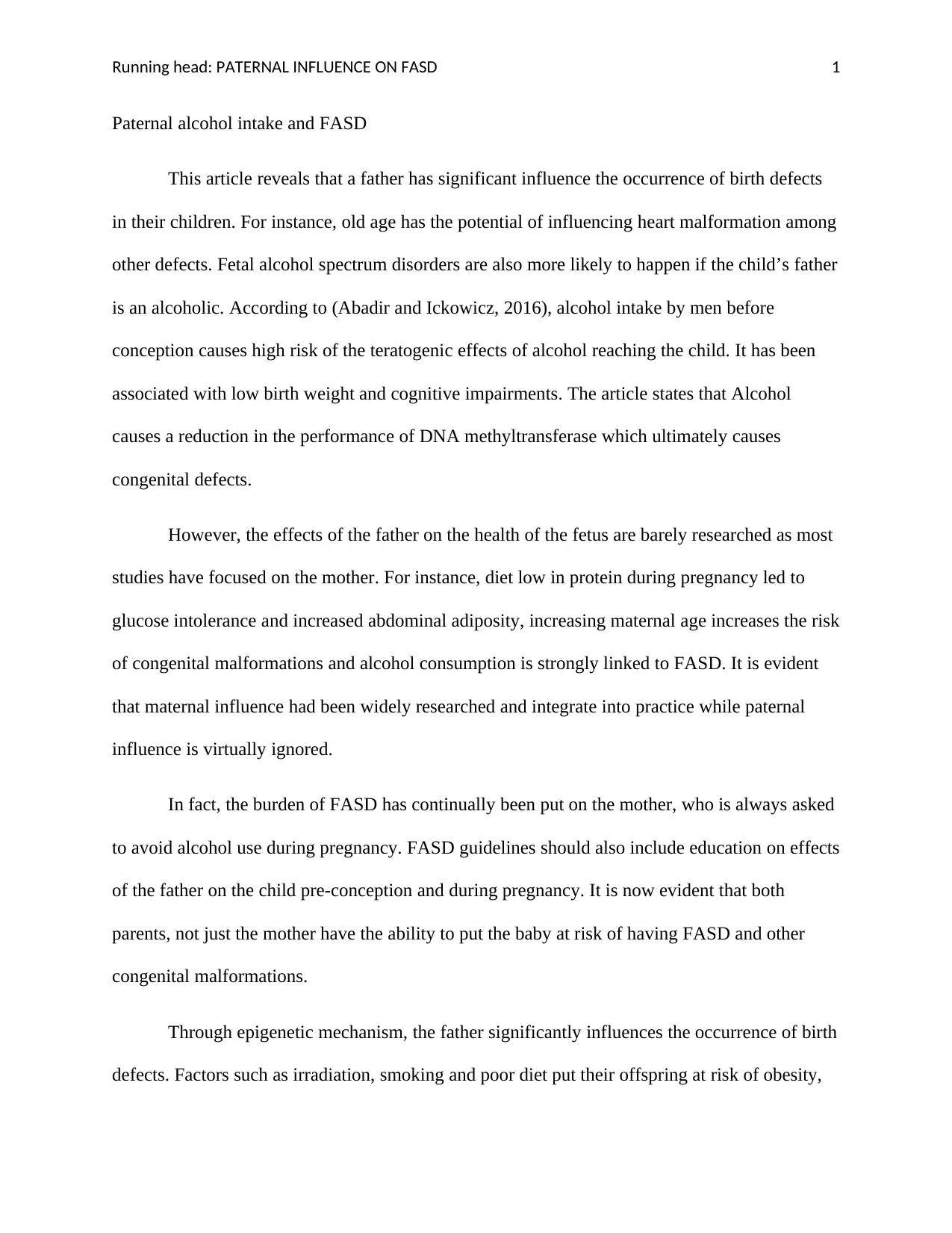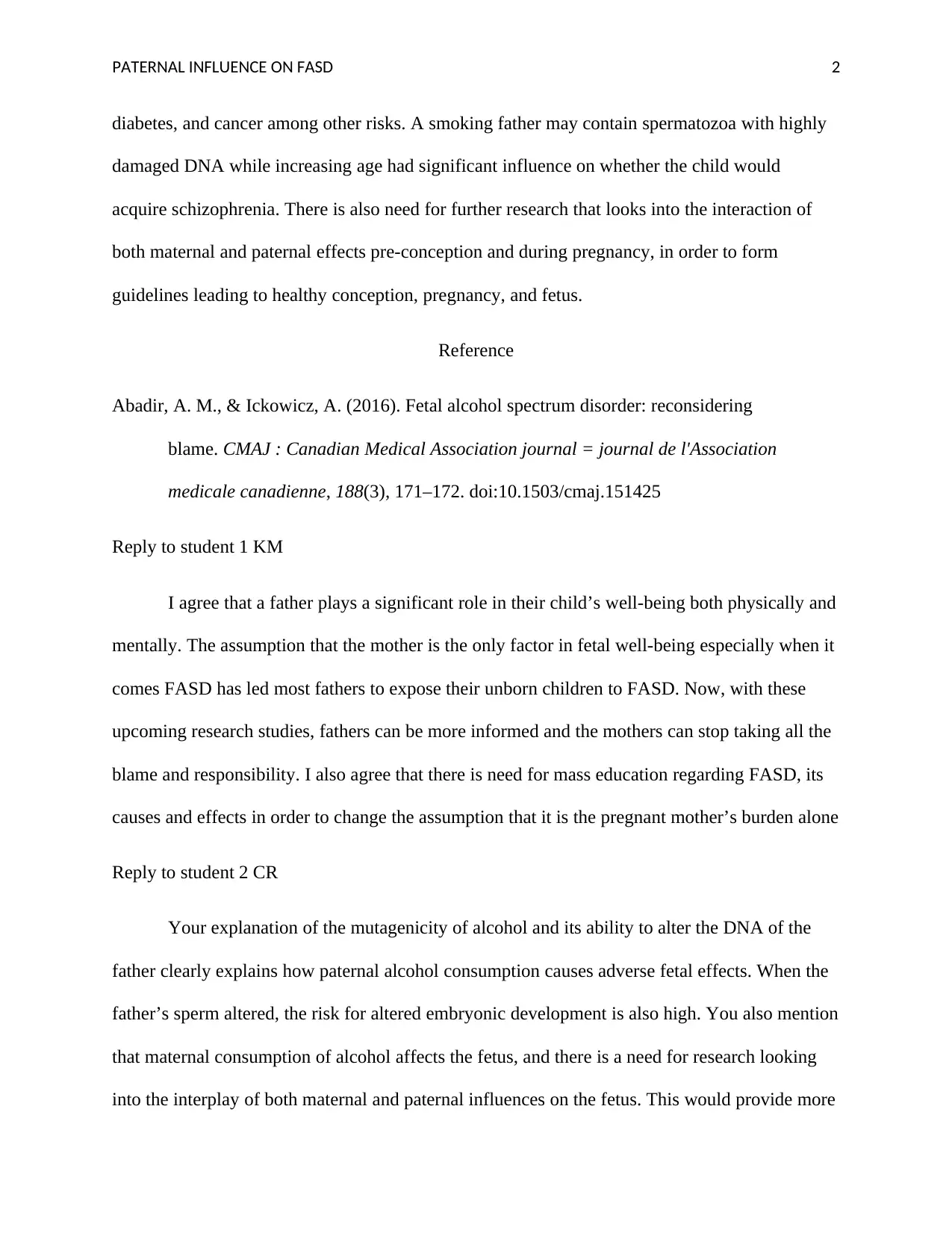Paternal Influence on FASD: A Discussion on Epigenetics and Risks
VerifiedAdded on 2022/09/28
|3
|655
|19
Discussion Board Post
AI Summary
This discussion post explores the significant influence of paternal alcohol consumption on the occurrence of Fetal Alcohol Spectrum Disorder (FASD). The assignment is based on a review article highlighting the role of epigenetics and paternal lifestyle in causing birth defects, contrasting with the traditional focus on maternal influence. The post analyzes how a father's drinking habits and overall health can affect the unborn child, leading to FASD. It includes student responses that agree with the importance of paternal impact, the need for education, and the shift in public discourse to recognize both parents' roles in fetal health. The discussion emphasizes the importance of further research into the combined effects of maternal and paternal factors and provides a detailed overview of the content.
1 out of 3






![[object Object]](/_next/static/media/star-bottom.7253800d.svg)